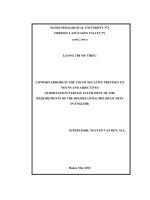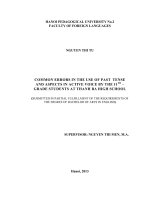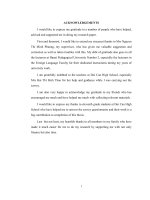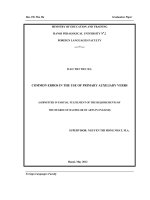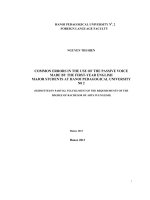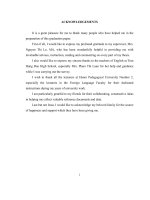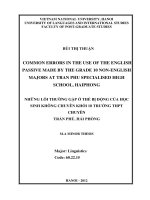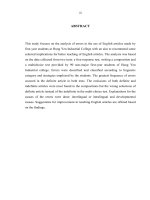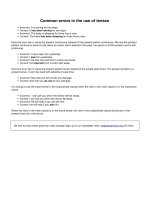Common errors in the use of tenses
Bạn đang xem bản rút gọn của tài liệu. Xem và tải ngay bản đầy đủ của tài liệu tại đây (12.86 KB, 1 trang )
Common errors in the use of tenses
Incorrect: It is raining for two days.
Correct: It
has been raining
for two days.
Incorrect: The baby is sleeping for three hours now.
Correct: The baby
has been sleeping
for three hours now.
Here the error lies in using the present continuous instead of the present perfect continuous. We use the present
perfect continuous tense to talk about an action which started in the past, has gone on till the present and is still
continuing.
Incorrect: I have seen him yesterday.
Correct: I
saw
him yesterday.
Incorrect: He has returned from London last week.
Correct: He
returned
from London last week.
Here the error lies in using the present perfect tense instead of the simple past tense. The present perfect is a
present tense. It can’t be used with adverbs of past time.
Incorrect: See that you will not do any damage.
Correct: See that you
do not
do any damage.
It is wrong to use the future tense in the subordinate clause when the verb in the main clause is in the imperative
mood.
Incorrect: I will call you when the dinner will be ready.
Correct: I will call you when the dinner
is
ready.
Incorrect: He will help if you will ask him.
Correct: He will help if you
ask
him.
When the verb in the main clause is in the future tense, the verb in the subordinate clause should be in the
present and not in the future.
Be first to know when grammar rules change! Sign up to our newsletter here: englishgrammar.org (It's free)
Powered by TCPDF (www.tcpdf.org)
